Wunderbar
Arcane
- Joined
- Nov 15, 2015
- Messages
- 8,825
does it have a cart?2018 numbers were basically start of store which didn't even had proper store layout and everything was made via duct tape.
does it have a cart?2018 numbers were basically start of store which didn't even had proper store layout and everything was made via duct tape.
I have a younger brother (or sister, I don't know LOL) who is only using Itch.io. It's over for Steam!Perkel's young brother ("around 14", it's normal to not know your brother's age, all you need to know is that egs is doing khraaazeeey numbers, ok) doesn't use steam.
It's over for steamtards.
OVER!















Tim Sweeney apologized to Ubisoft in 2019 for 'extraordinary' Division 2 fraud on the Epic Store
Epic was forced to halt Ubisoft transactions on its storefront after Division 2 fraud rates surpassed 70%.
In April 2019, Epic Games announced a raft of new account security features that were planned to roll out later in the year, including email verification of new accounts and two-factor authentication. At the time, it seemed like a natural (if overdue) evolution of the Epic Games Store, but emails presented today as part of the Epic v. Apple lawsuit reveal that Epic's barebones account system was causing more headaches than we realized.
The email chain indicates that Epic's trouble was twofold: Fake accounts were easy to make, and it couldn't deactivate games on other storefronts—the so-called "clawback" option—which meant that games remained playable through Uplay even when the associated Epic account was deactivated.
"We believe fraud to be due to account re-selling being viable," Epic COO Daniel Vogel wrote at the time. "Fraudster creates Uplay account, uses stolen CC to purchase The Division, and then sells the account. While Epic account gets disabled by chargeback, without clawback with Ubisoft the game is still available on Uplay and sold account works."
Epic's Scott Adams was blunter in his criticism of the store. "Doesn't help that we don't currently verify email address or have good account security," he wrote.
The rate of fraudulent purchases reach a point that in May 2019, Epic was forced to disable purchases of The Division 2 and Anno 1800, and eventually all Ubisoft games.
At the time, it sounded like a relatively routine technical problem—Epic said it was "experiencing issues with our UPlay integration"—but another email surfaced in the Apple trial reveals that it was driven by "extraordinary" rates of fraudulent purchases of The Division 2 on the Epic Store. The problem was bad enough that Epic CEO Tim Sweeney emailed a personal apology to Ubisoft CEO Yves Guillemot.
"In the past 48 hours, the rate of fraudulent transactions on Division 2 surpassed 70%, and was approaching 90%," Sweeney wrote on May 11, 2019, the same day Epic halted purchases on Ubisoft games. "Sophisticated hackers were creating Epic accounts, buying Ubisoft games with stolen credit cards, and then selling the linked Uplay accounts faster than we were disabling linked Uplay purchases for fraud.
"Fraud rates for other Epic Games store titles are under 2% and Fortnite is under 1%. So 70% fraud was an extraordinary situation."
Sweeney said Epic would restore Ubisoft game purchases as soon as possible, but warned that it would likely take at least two weeks to implement the systems required to make that possible. As Epic did in the tweet, he also took full responsibility for the problem, and promised that "all of the minimum revenue guarantees remain in place to ensure our performance," effectively guaranteeing that Ubisoft wouldn't take a loss because of the problem.
The legal slapfight between Apple and Epic is a big one, with potentially major consequences for the way programs are bought and sold online. But it's also revealed some entirely unrelated but still very interesting facts, including that Walmart was (and maybe still is) working on its own cloud gaming service, that Epic spent more than $11 million over nine months on free games, and that in the grand scheme of things that amount was chump change because Fortnite, all by itself, earned more than $9 billion over 2018-19.
Epic Games has spent at least $1 billion on exclusives
Previously confidential documents offer more proof of Epic’s sledgehammer approach to gaining marketshare.
As of September 2019, Epic Games had signed up 105 exclusives for the Epic Games Store, amounting to a total of just over $1 billion spent securing them. That’s according to documents released as part of the ongoing Epic vs. Apple trial, which is unearthing some very interesting business dealings indeed.
In its October 2019 ‘Review of Performance and Strategy’ document (hosted here as a .pdf), it’s reiterated that Epic spent $444 million on its 2019 exclusive launches: we already knew that. But it also confirms that $542 million was spent on 2019 launch exclusives, while—as of September 2019—it had already spent $52 million securing four exclusives for 2021. Naturally, that number will have increased since.
It’s hardly breaking news that Epic Games is throwing a heck of a lot of money at its PC storefront, but $1 billion on exclusive launches—most of them timed, as they usually come to Steam after 12 months—is a startling number. Far more startling than the $11 million it spent between December 2018 and September 2019 on its free games offerings, which seems fairly miniscule given how many new account sign-ups it cultivated.
The exclusives will likely continue, too. According to Epic’s “Aggressive Pursuit Model”—that is, the model they’ll follow if things are going well—it’ll aim for 52 exclusives in 2021, 36 in 2022, 34 in 2023 and 34 in 2024. Given that Epic told us earlier this year that it’s doubling down on exclusive launches, it looks like they’re following that model.
Borderlands 3 exclusivity cost Epic $115 million
That's a lot of V-bucks.
The Epic v Apple lawsuit that began this week has given us an impressive collection of corporate documents to sift through, almost like some kind of box containing loot. Within a review of performance and strategy dated October 25, 2019, there's a section on the Borderlands 3 deal, disclosing that the looter-shooter's six-month exclusivity period cost Epic $115 million.
That includes a $15 million marketing commitment, $20 million in non-recoupable fees, and an $80 million minimum guarantee—an advance paid ahead of the game going on sale. Borderlands 3 sold well enough to reach that guarantee within two weeks, with a recoupable revenue of $100 million in the period. A graph of the Epic store's daily revenue across its first 11 months peaks dramatically with its launch. Of the 1.56 million Borderlands players Epic picked up in those two weeks, 53% were apparently new to the store rather than returning customers.
The document also shows that Epic paid $11 million for its free giveaway of the Handsome Collection, a bundle containing Borderlands 2, the Pre-Sequel, and most of their DLC (excluding Commander Lilith & the Fight for Sanctuary, released after the collection was created). That one freebie cost almost as much as Epic spent on the first nine months of giveaways, which it paid more than $11 million for.
Among the other revelations the court case has brought, we learned that Epic has spent at least $1 billion on exclusives so far, Tim Sweeney apologized to Ubisoft for the amount of fraud related to The Division 2 on Epic's store, and if you don't check the settings on your conference call you might end up with a bunch of Fortnite kids going nuts in a court case.

Always double check your conference call settings. The Epic v Apple trial began this morning with kids yelling overtop each other on a packed phone line. "I would suck all of you to get Fortnite mobile back," said one voice















Epic apparently offered Sony $200M for first-party PlayStation exclusives
Microsoft has been less receptive to the Epic Games Store, and Nintendo was seemingly a non-starter.
The Epic v Apple trial keeps delivering interesting information, particularly about deals and spending related to the Epic Games Store. We've learned, for example, that in 2019 and 2020 Epic promised about $1 billion in advances for exclusives, including $115 million for Borderlands 3. A new trial exhibit—which was apparently released accidentally—shows that Epic offered Sony a $200 million advance to get first-party PlayStation games on the Epic Games Store exclusively.
We don't know what kind of deal Epic and Sony may have arrived at, as the document in question was made before any handshake. It says that Epic offered Sony "$200M MG+ for 4-6 titles" and was awaiting Sony's response. "MG" surely stands for "minimum guarantee," which is how Epic refers to these exclusivity deals: It's the minimum revenue Epic guarantees a game publisher will make with an Epic Games Store exclusive, whether or not their game actually sells enough to cover it.
The wording is somewhat ambiguous: Is it $200M per game, or $200M for all 4-6 games? It depends on the specific games, surely, and so far only two Sony-published games have released exclusively on the Epic Store: ReadySet Heroes and Predator: Hunting Grounds. One hopes Epic didn't put down $200M for Predator: Hunting Grounds, and $200M for both wouldn't make sense, either. Either a totally different deal was struck in the end, or those two games are part of a bigger batch of Sony-published exclusives coming to the Epic Games Store. (ReadySet Heroes remains exclusive, by the way, while Predator: Hunting Grounds has since released on Steam following a year of exclusivity.)
Other Sony-published games have released on the Epic Games Store, just not exclusively. Horizon Zero Dawn launched on the Epic Games Store and Steam simultaneously, and the upcoming PC release of Days Gone will do the same. If I had to guess, the original $200M pitch targeted those games, not ReadySet Heroes, but it's just a guess.
There's still no sign that Sony's flagship games, such as the Uncharted and God of War games, are coming to PC at all. An exclusive Epic Games Store release of Bloodborne would certainly be a win for Epic, and would start to make the $200 million figure more sensible, but we haven't heard anything on that front, I'm afraid.
Epic and Sony don't always see eye-to-eye (they had a bit of an argument over crossplay), but they are pretty tight. The PlayStation company even owns a bit of Epic: Sony put $200 million into the business recently, and invested $250 million last year. Sony's clearly got the ear of Epic CEO and controlling shareholder Tim Sweeney, and vice versa.
As for Microsoft, Epic's initial talks apparently turned up resistance. The document notes that the head of Xbox Game Pass for PC didn't like what Epic was up to with its store, and that Microsoft viewed Epic as a company it was competing with to sign games. It also mentions that Xbox head Phil Spencer and Valve boss Gabe Newell were having meetings at the time.
No surprise there: Microsoft quite openly backed Valve when it started putting its games on Steam again, including the Halo Master Chief Collection.
As for getting Nintendo games on the Epic Games Store, there may not even have been an attempt. The document describes the idea as a "moonshot" and "non-starter." Sounds about right.
This document snippet was retrieved from the Box folder where Epic and Apple's attorneys have been uploading exhibits. It was deleted after being uploaded, but Resetera poster Raigor grabbed it (they've grabbed other now-deleted documents from the folder). I didn't peep the folder in time to see the document myself, but surprising as it may seem, such a mistake has become expected during the first week of the Epic v Apple trial. On day one, Apple uploaded a ton of documents that it didn't mean to, which is how we learned about some of Epic's other dealings.
I've contacted Epic, and will update this story if it provides more context or denies that it made such an offer to Sony. I'm confident the snippet is real because of its relative mundanity—compared to, say, the email in which Sweeney apologizes to Ubisoft—and what I know about Epic's deals.
One point of clarification: As I mentioned, when Epic 'buys' an exclusivity deal, it's really guaranteeing the game's publisher a minimum amount of revenue. If the minimum guarantee is $200 million, Epic can break even on the deal if it makes that $200 million back in sales of the game, which is called recoupment. During recoupment, Epic may be taking 100% of the revenue. I haven't seen that spelled out anywhere, but it wouldn't be an uncommon deal. (See how game publishing deals work for context.) Once Epic recouped the advance, the normal Epic Games Store 12/88 split would likely kick in.
The breakdown of the Borderlands deal, however, revealed that only a portion of these exclusivity deals counts as recoupable. Along with an $80 million minimum guarantee for Borderlands 3 (which Epic easily recouped), Epic paid $15 million in marketing and a $20 million non-recoupable fee, meaning Epic had to make that money back through the normal revenue split. The point is that any Epic Games Store exclusivity deal we hear about may include stipulations we aren't aware of, unless we get an itemized receipt like we did with Borderlands 3.
In related news, I've written a breakdown of what the Epic v Apple trial is all about, because there is a trial going on, not just a bunch of interesting documents accidentally being uploaded to a Box folder by attorneys.




I got an email from lifelock about this. I never bought shit from them so I was like, "Meh."
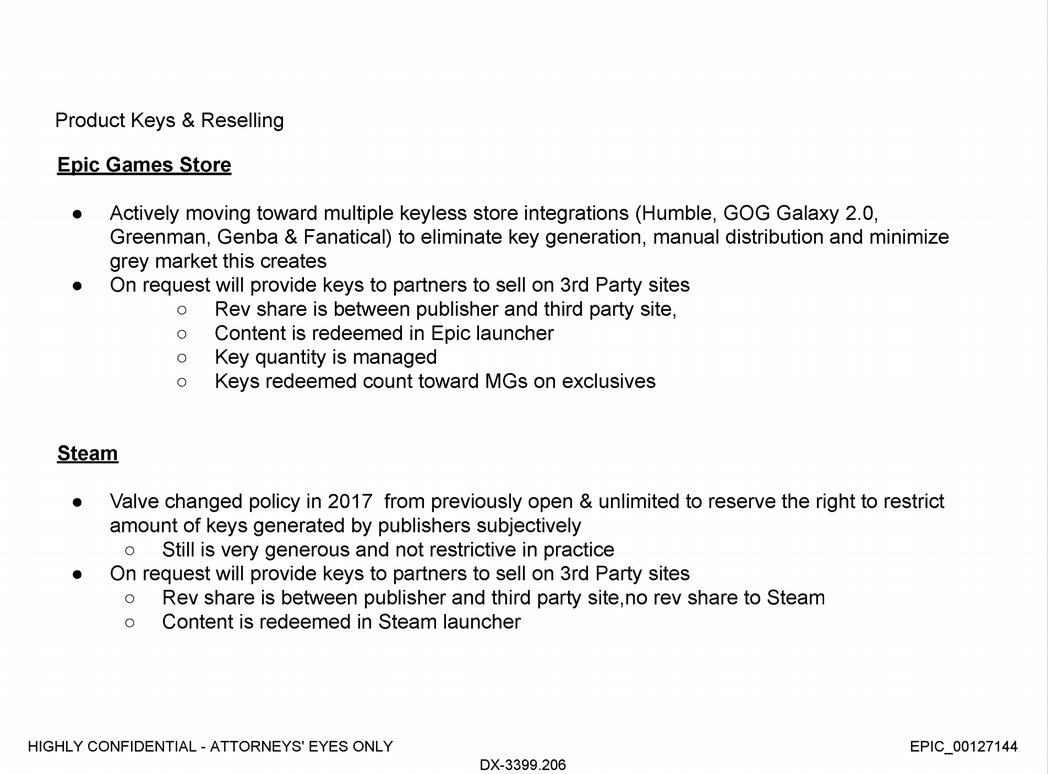
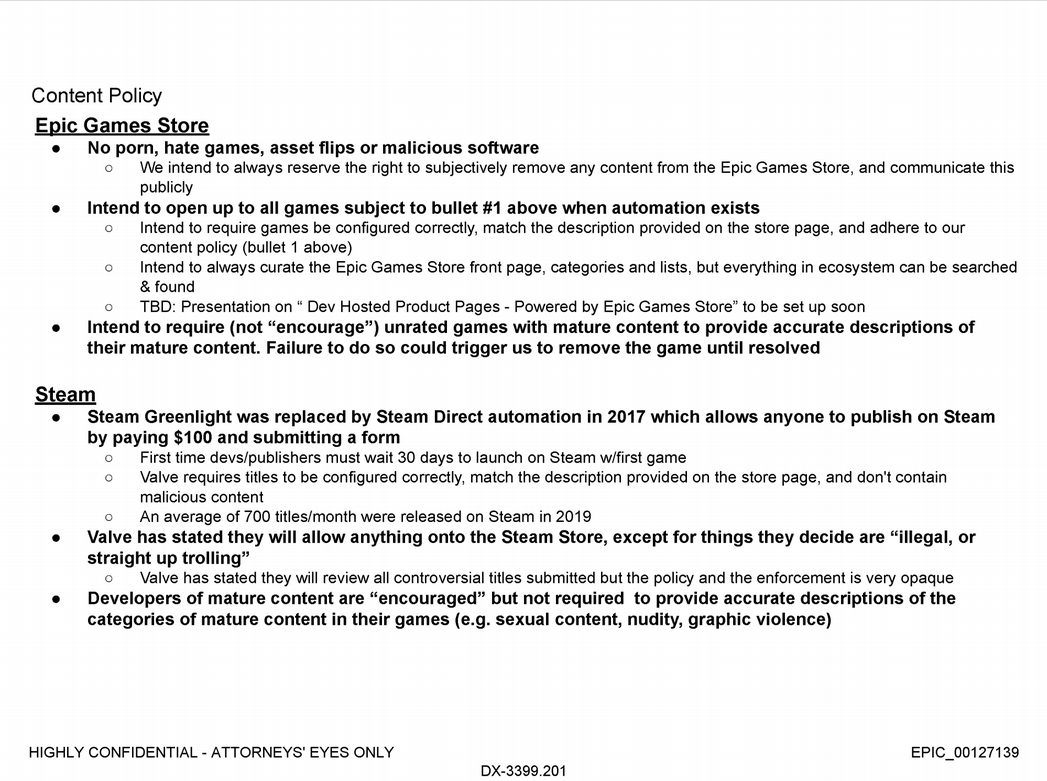
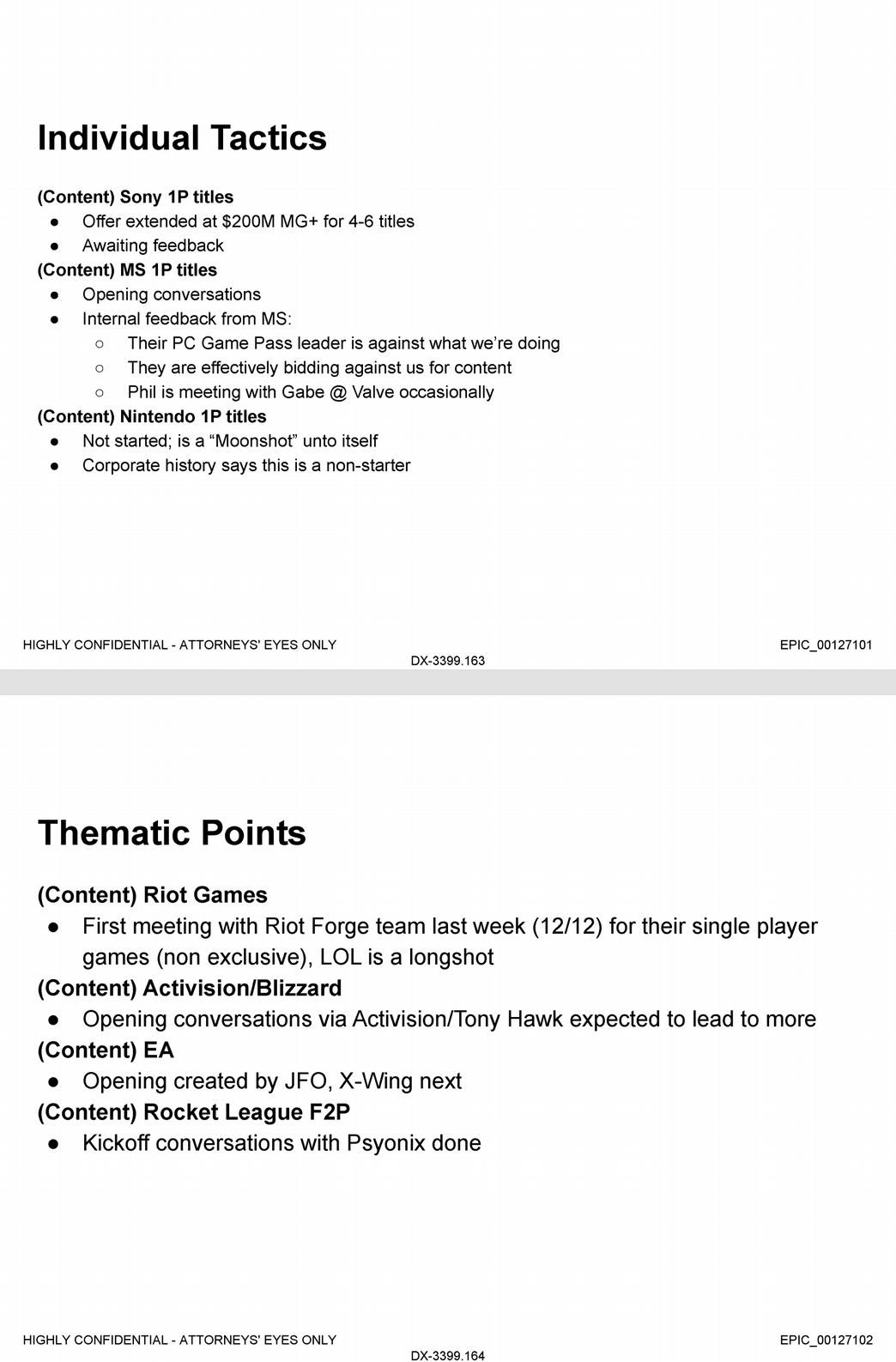
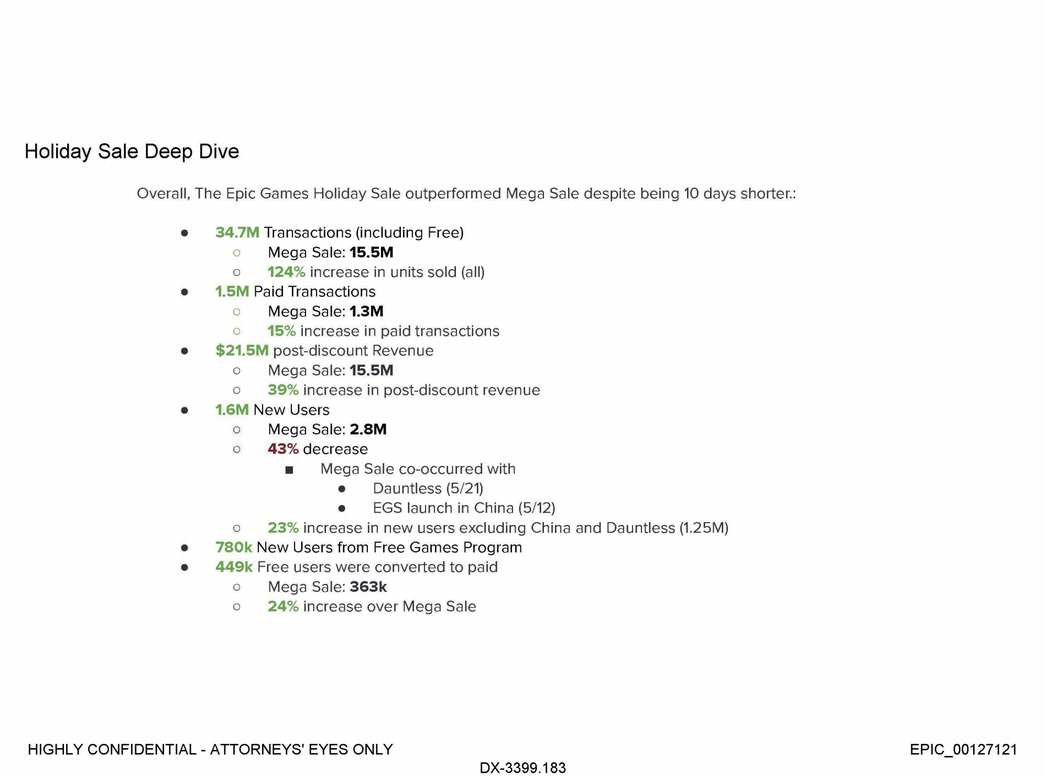
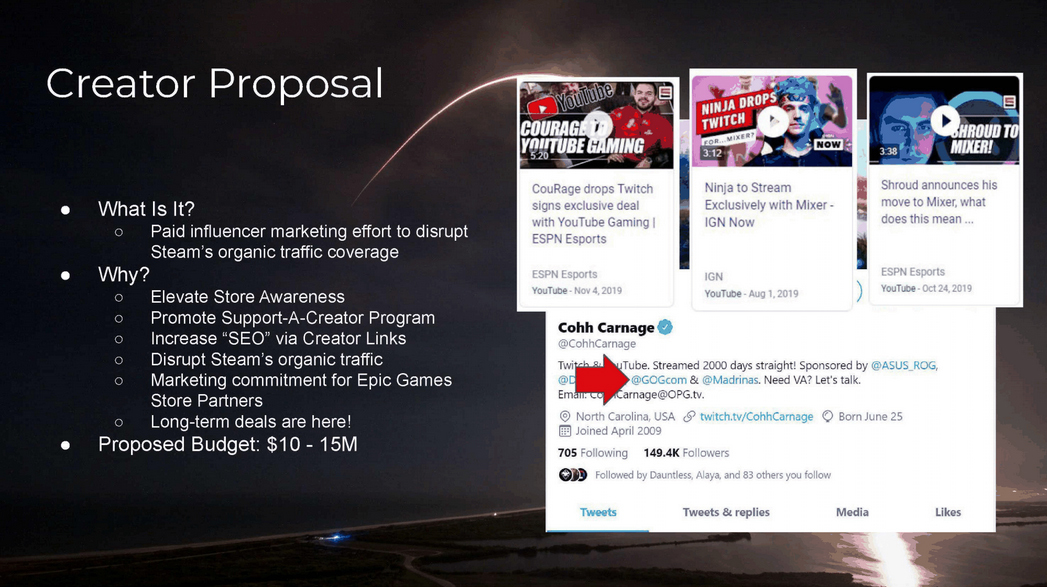
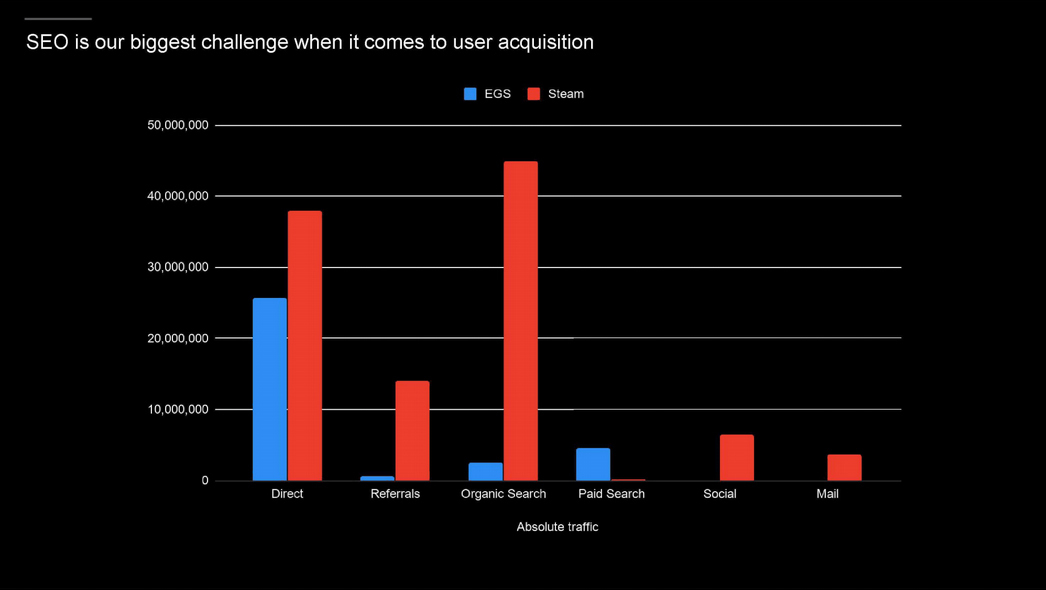
Epic Games Paid Streamers for Aggressive Marketing
According to another document revealed in the course of the trial between Apple and Epic Games, Tim Sweeney's company was to pay various influencers, mainly to land a marketing hit on its direct competitor, Steam.

The court hearing between Epic Games and Apple continues, and as it progresses, new revelations are being made known to everyone involved. Yesterday, a document was revealed (previously presented in the courtroom), which confirms that Tim Sweeney's company paid various streamers and influencers to advertise its store. However, the main purpose of this marketing campaign was to disrupt the organic traffic of Steam - Epic's direct competitor.
Organic traffic is the term for all Internet users who came to a given website through free search results, i.e. those not marked as advertising. If you type the name of any game into, say, Google search, in virtually every case the link to Steam will be higher than the link leading to Epic Games Store. The involvement of popular developers was supposed to push EGS to the top of search results and thus knock the competition off their pedestal. The estimated budget for this plan oscillated around 10-15 million dollars.

A slide from Epic Games' presentation briefly outlining plans to pay influencers.
This isn't the first interesting information to come out of documents presented in the court battle between the two corporate giants. Previously, we learned that Epic Games paid $115 million for the temporary exclusivity of Borderlands 3, and about a deal with Sony that would see the Japanese company receive a $200 million advance for providing Epic with several exclusive games.


Jesus Christ, talk about wasting money.paid $115 million for the temporary exclusivity of Borderlands 3










Reminder that EGS cultists will continue to yell "IT'S GOOD FOR THE CUSTOMERS!"
Sweeny has indeed claimed that steam enforces parity, btw.
Really can't see how that makes me retarded, but you do your thing.
I was not aware of this, as I don't really follow it, I'm interested only in generalities and principles of these things, so ok retarded rating was undeserved and I was not well informed on all Tim's claims.
We've established that Steam is not guilty of forcing price matching according to the slide and that price matching for Steam keys is perfectly justified.
As for Tim's claims:
1) Maybe it was the case 2 years ago, or maybe Tim was disingenous, it's not the case currently according to this recent case slide.
2) Not a Steam problem or fault indeed.
I also highly doubt Steam customers would be angry at publisher because of EGS selling 10% cheaper then Steam.
Store credit for purchases, permanent sale discount and deeper discounts on actual sales events, or these promo coupons like Epic did are all ways to execute cheaper prices, without angering the worst simpletons anyway, but again highly doubt that is even necessary.
You are also right EGS technically does price matching indeed, but the context is a bit different than what Steam was ( unjustly ) accused of.
If a dominant platform with the biggest cut demands price parity, it effectively forces to sold in to their store cheaper, then to competition, when a platform with the lowest cut forces parity it forces to not sell in higher to their store.
As I said in the other thread, ideally the only price parity stores should be allowed to demand from sellers as a condition of doing bussiness is sold in price with an advertised MSRP parity.
And then it should be up to the stores to compete on price markups and quality of service and up to customers to decide if the service is worth the higher price.
If Steam requires price matching only for Steam keys, it's perfectly fine by me. EGS never accused Steam of that, it was Wolfire develeopper.
Now the point where you are retarded is they match price down on their store while still offering better cut.
Which is opposite of what Wolfire dev was accussing Steam of, which was forcing matching up on other stores offering better cut under a threat of delisting from their dominant platform, which according to this doccument is false.







